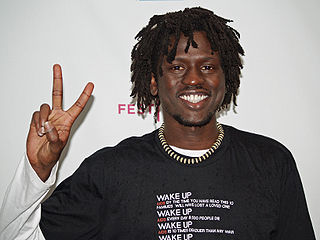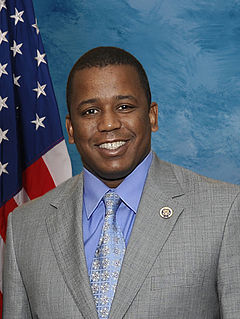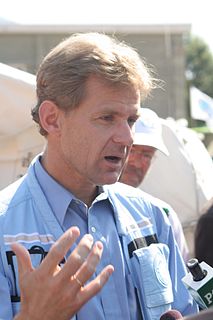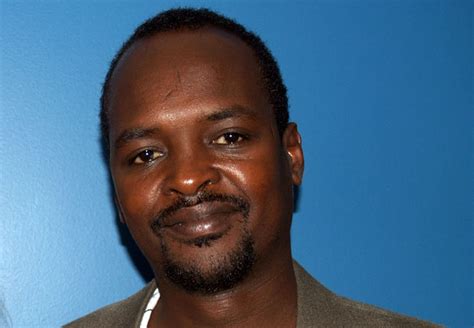A Quote by Emmanuel Jal
Violence in Darfur is cataclysmic.
Quote Topics
Related Quotes
I must remind you that starving a child is violence. Suppressing a culture is violence. Neglecting school children is violence. Punishing a mother and her family is violence. Discrimination against a working man is violence. Ghetto housing is violence. Ignoring medical need is violence. Contempt for poverty is violence.
We must realize that violence is not confined to physical violence. Fear is violence, caste discrimination is violence, exploitation of others, however subtle, is violence, segregation is violence, thinking ill of others and condemning others are violence. In order to reduce individual acts of physical violence, we must work to eliminate violence at all levels, mental, verbal, personal, and social, including violence to animals, plants, and all other forms of life.
If the world allows the people of Darfur to be removed forever from their land and their way of life, then genocide will happen elsewhere because it will be seen as something that works. It must not be allowed to work. The people of Darfur need to go home now. I write this for them, and for that day, ... and for those still living who might yet have beautiful lives on the earth.
I'm so sick of seeing guns in movies, and all this violence; and if there was going to be violence in Pines, I wanted it to actually be narrative violence. I wasn't interested in fetishizing violence in any way of making it feel cool or slow-motion violence. I wanted it to be just violence that affected the story.
My approach to violence is that if it's pertinent, if that's the kind of movie you're making, then it has a purposeI think there's a natural system in your own head about how much violence the scene warrants. It's not an intellectual process, it's an instinctive process. I like to think it's not violence for the sake of violence and in this particular film, it's actually violence for the annihilation of violence.
All violence is injustice. Responding to violence with violence is injustice, not only to the other person but also to oneself. Responding to violence with violence resolves nothing; it only escalates violence, anger and hatred. It is only with compassion that we can embrace and disintegrate violence. This is true in relationships between individuals as well as in relationships between nations.




































